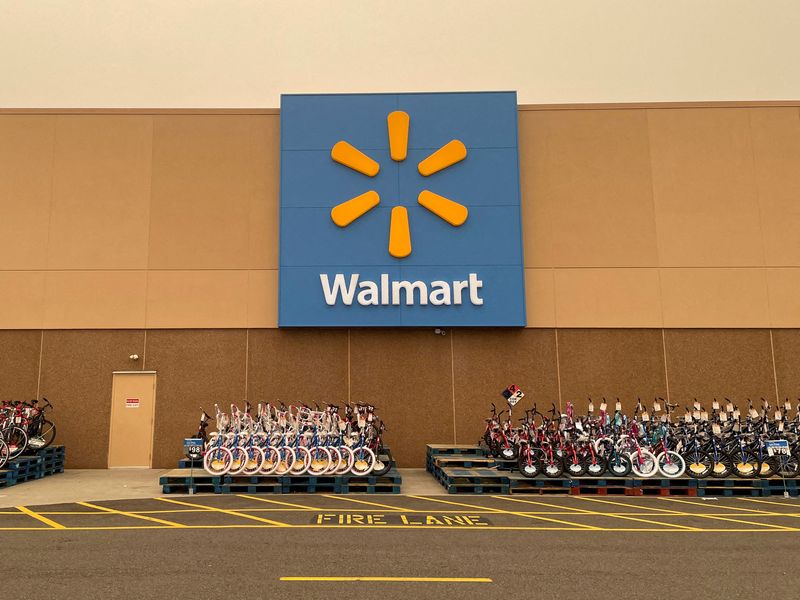NEW YORK (Reuters) - Walmart (NYSE:WMT) said on Tuesday it would provide marketplace sellers its services to handle transportation of their goods from Asia directly to its U.S. warehouses, as well as fulfill orders and manage returns from any e-commerce website, in a new approach to bolstering its marketplace business ahead of the holiday season.
Walmart's marketplace business has become an important revenue stream as it seeks to close the gap in handling third-party sales with Amazon (NASDAQ:AMZN).
The world's largest retailer's announcements follow the unwinding of its stake in Chinese e-commerce retailer JD (NASDAQ:JD).com last week. Walmart's efforts show that it is looking to handle more of its third-party business in-house.
Walmart will also offer cash advances to qualified third-party sellers and waive peak-season storage fees for those who send their inventories to Walmart's fulfillment centers before Sept. 30.
These initiatives, announced during Walmart's annual Marketplace Seller Summit, are designed to assist sellers in meeting demand for holiday shopping and preparing for Walmart sales events. These events have historically coincided with Amazon's Prime Day in October.
Over the past year, Walmart has aggressively added sellers to its Walmart.com marketplace, mainly from China. The retailer profits by encouraging these sellers, usually small businesses or independent stores, to use its Walmart delivery network or Walmart Fulfillment Services to fulfill orders and advertise their products on Walmart.com.
Sales via Walmart's marketplace have increased by over 30% in each of its past four quarters, the company said, contributing significantly to its global e-commerce sales, which exceeded $100 billion last year.

Walmart has over 420 million products on its marketplace and more than 100,000 active sellers, over a third of whom are based in China, according to research firm, Marketplace Pulse. However, it still trails Amazon, which boasts more than 2 million active sellers.
Walmart also announced that sellers could ship orders to customers via its fulfillment service at rates averaging 15% cheaper than competitors, though it did not provide details on the competitors. It also offered a service to handle the transportation of third-party sellers' goods from Asian ports of origin directly to its U.S. warehouses.